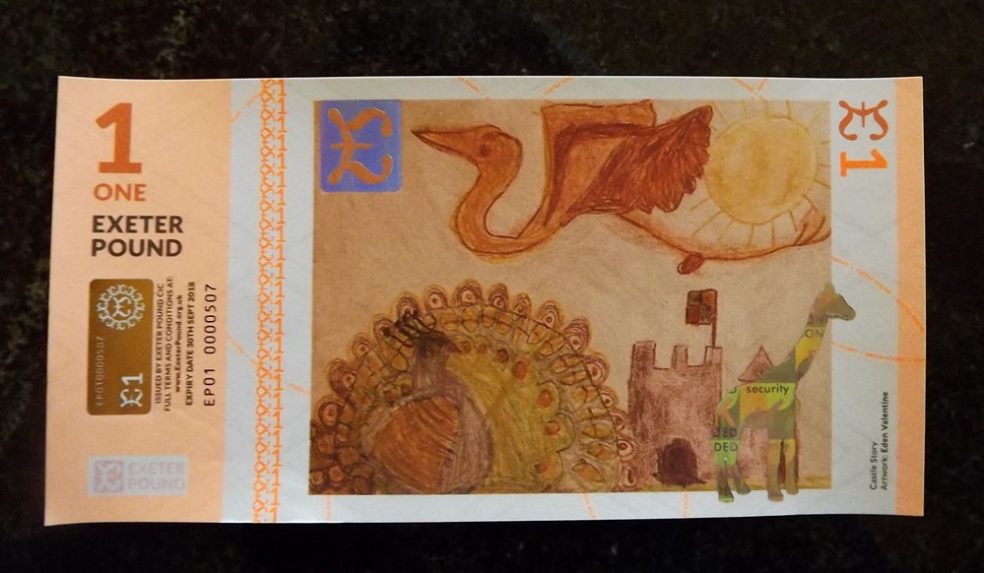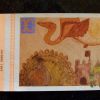
The Exeter Pound – good value for local money
This week has seen the launch of a new community currency in Devon. From 1st September the Exeter Pound has been tradable in about one hundred independent businesses in and around the city. Exeter is thus joining Bristol, Totnes and a few other places in England to introduce a local money system that has no value outside its own community, but which will be worth much within it.
As from now, Exonians are able to spend their own notes (one, five, ten and twenty Exeter Pound denominations, plus a 15 EP special for the Rugby World Cup!) in registered shops, cafes, pubs, leisure venues, restaurants and elsewhere. Exeter Cathedral will accept the new money in its shop and cafeteria, as well as for admission charges. Churches are likely to find the paper notes in their collection plates.
Why is this a positive thing? Is it good value? Well, on the face of it, the scheme is a kind of loyalty voucher that helps currency stay in the community, building trust between businesses and customers, and strengthening the city’s local economy. In the longer term, it will encourage more local commercial activity, can prevent poverty and reduce environmental damage. There will be social, economic and ecological advantages, which will all be strengthened further when Exeter Pound goes digital in 2016.
But there is surely another perspective to this initiative. Our world is apparently bleak with news of the pressures of global warming, transnational corporations, corrupt political systems and growing numbers of conflict and climate refugees. In the face of all this, the deeper message of the Exeter Pound is that local people can begin to make a positive impact on their city – in spite of the odds. As democracy declines, here is a clear example of citizens taking back some power to their own community. It may not immediately change our individualistic, greed-centred culture, but it will point that a different way is possible - and it can begin with anyone.
To the same effect, we can note the growth of community energy companies, community transport or food projects, community businesses and cooperatives. While the Global Economy says ‘big is best’, the Environmental Movement says ‘small is achievable, as well as beautiful!’
‘Subsidiarity’ is the encouragement of institutions or organisations that are no larger than necessary, no more remote than needed. It reflects the value expressed in faith traditions that our humanity is maximised when people care about one another and share resources at a personal and community level. Participating in a community currency is a discreet but potent form of loving our neighbour…
Maybe that is why local money initiatives are valuable – because they encourage relationships based on compassion and trust, not fear and hatred. The Exeter Pound is a symbol of imaginative hope.
Mahatma Gandhi once wrote, “Your beliefs become your thoughts; your thoughts become your words; your words become your actions; your actions become your habits; your habits become your values; your values become your destiny.”
While the messages from the media can blow cold around us, saturated at times with the language of division and discrimination, let’s hope those who engage with the Exeter Pound can demonstrate in a small way the way of warmth and well-being.
This article first appeared in Devon Churches Green Action News September 2015














